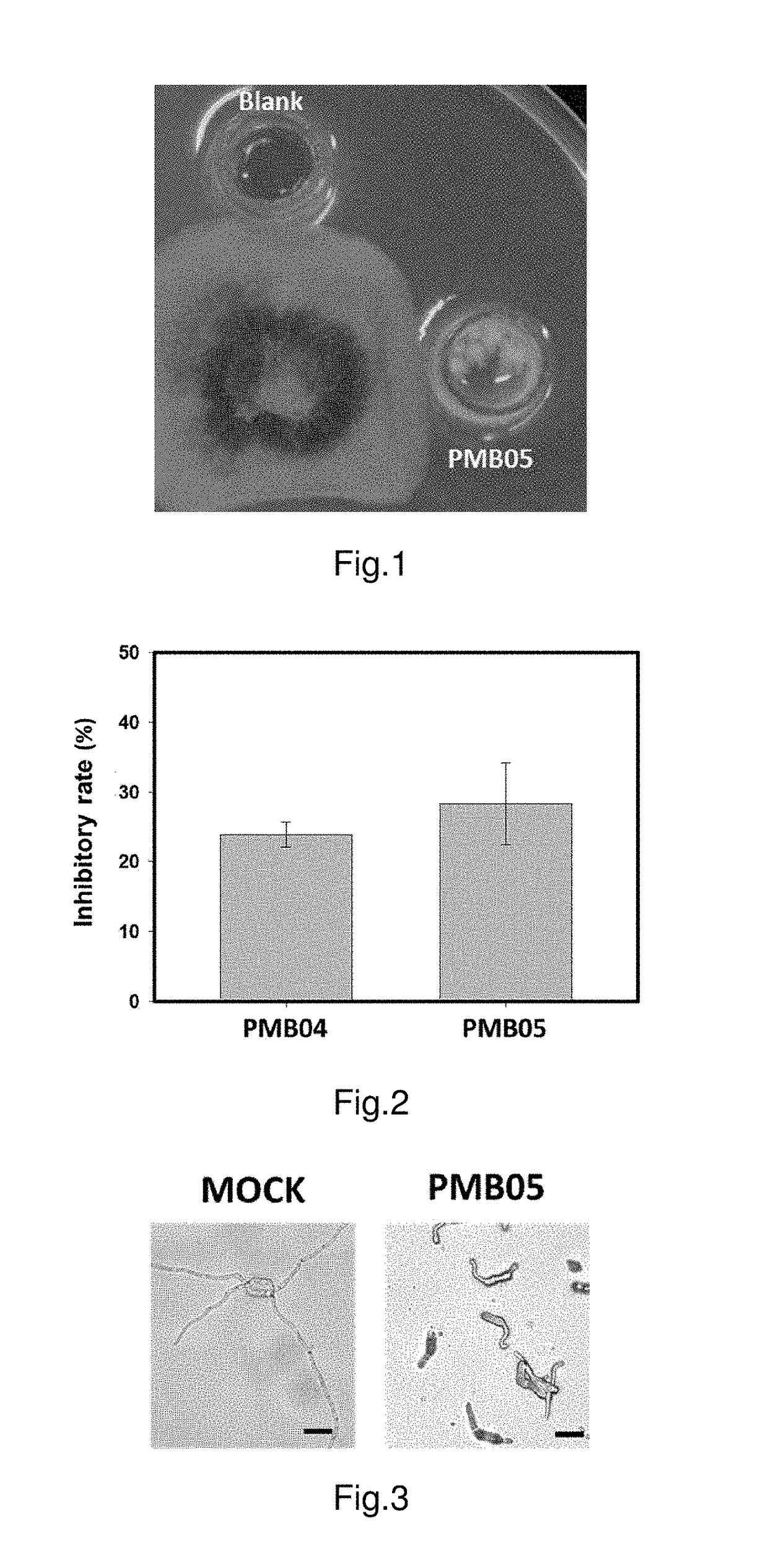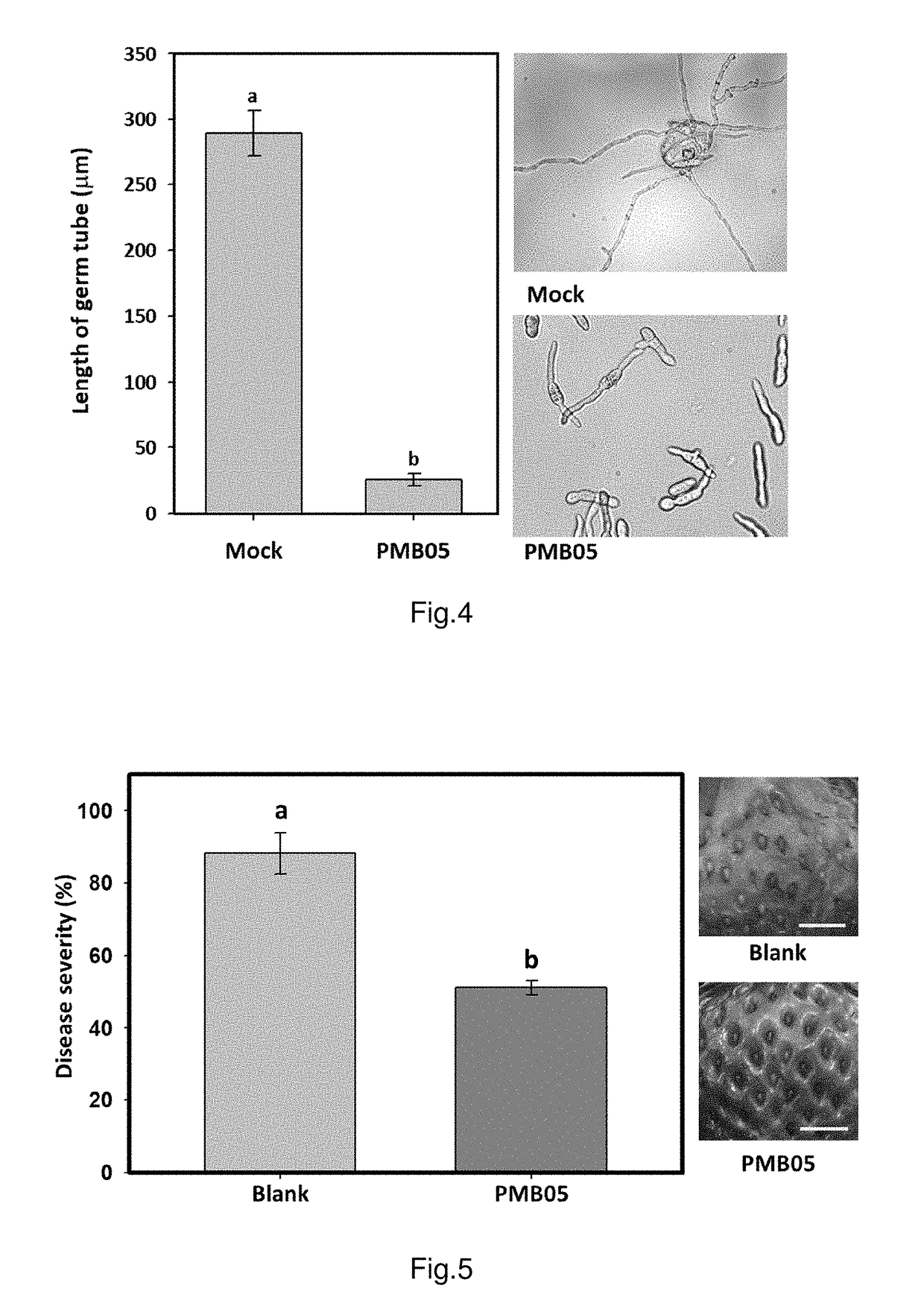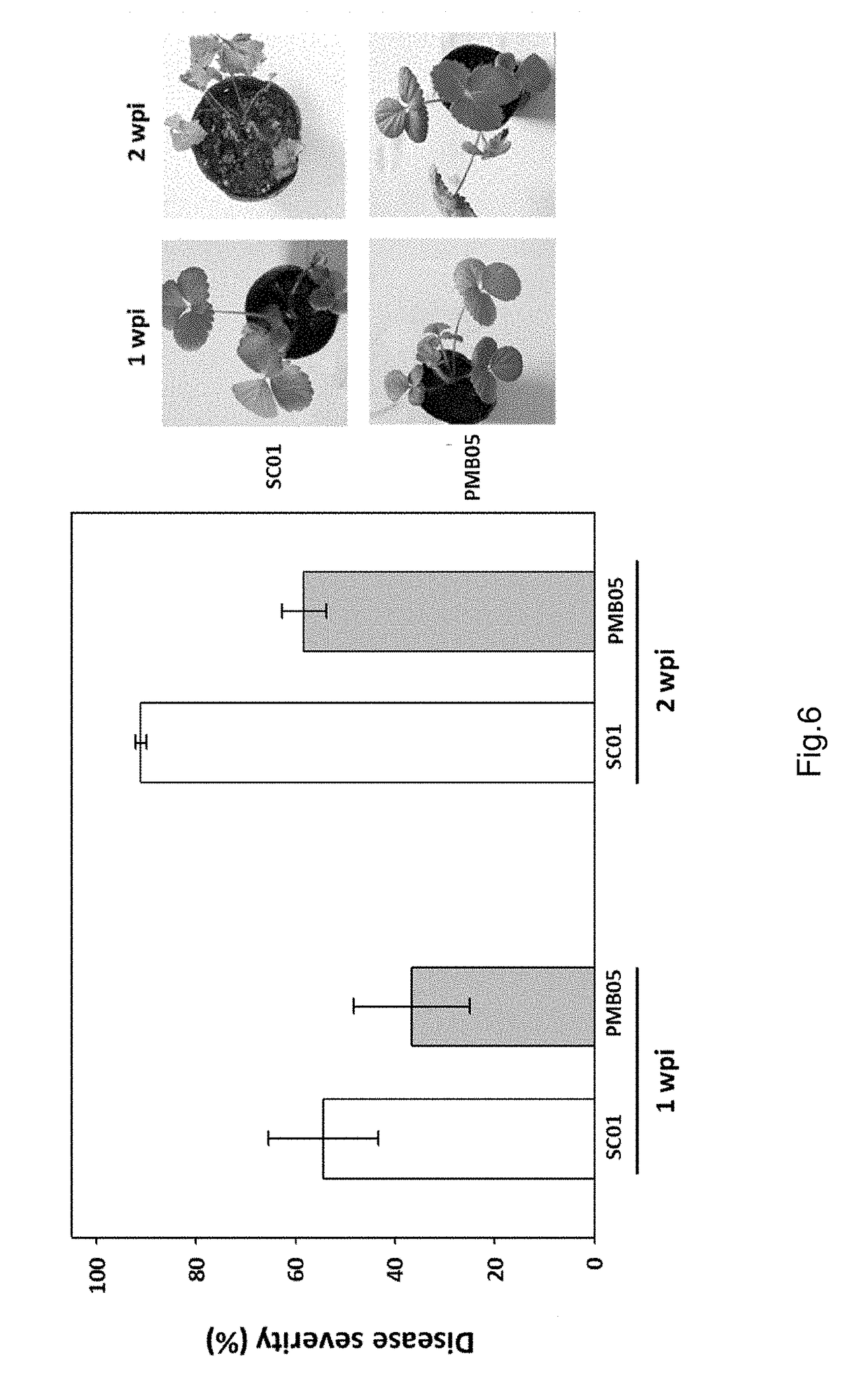Bacillus Amyloliquefaciens Strain and Its Use
a technology of amyloliquefaciens and bacillus amylolique, which is applied in the field of plant disease control, can solve the problems of limitation of the type of disease to be applied and inability to control the effect of diseases
- Summary
- Abstract
- Description
- Claims
- Application Information
AI Technical Summary
Benefits of technology
Problems solved by technology
Method used
Image
Examples
example 1
ural Test Against Fungal Pathogens
[0059]The fungal pathogens used in this embodiment are strawberry anthracnose fungi (C. gloeosporioides). Add NA culture medium into the plate, and place 1 cm glass rings on the four corners at a distance of 2 cm from the center, and then add PDA culture medium to the plate as dual culture medium. First, incubate strain SC01 of strawberry anthracnose fungi (C. gloeosporioides) on a PDA plate. After five days, use a puncher with a diameter of 0.8 cm to cut out the mycelium at margin of colony, and place the cut-out piece at the center of the dual culture medium. Incubate antagonistic bacteria PMB05 in NB liquid culture medium, and incubate the culture until concentration reach 0.3 at OD600 value. Then draw 20 μl of culture and dispense it into the glass rings. Incubate the plate at the growth chamber under 28° C. and observe the results after 3 days. Repeat the process for 5 times. The inhibitory rate is calculated as follows:
Inhibitoryrate(%)=(hypha...
example 2
tiveness of Inhibiting Germ Tube Growth of Fungal Pathogens
[0061]This example is to analyse the effectiveness of strain PMB05 culture filtrate in inhibiting the hyphal length of fungal pathogen, and the fungal pathogens used are strawberry anthracnose fungi (C. gloeosporioides). First, the spores of anthracnose fungi (C. gloeosporioides) strain SC01 are washed down by sterile H2O to prepare spore cell suspension of 105 conidia / ml. Mix 100 μl of spore cell suspension with the nutrient source, 100 μl of 0.2% glucose solution, then add 100 μl of the aforementioned strain PMB05 culture filtrate in a microtube (the control group is added with sterile SYM liquid culture medium instead) and the total volume is accounted to 300 μl. The mixture is then put in a growth chamber at 25° C. After 12 hours, 50 μl of the mixture is drawn and dispensed into a cavity slide. Observe the slide by a microscope and count the number of budding spores in the slide. Repeat 3 times for each test and a total ...
example 3
ol Efficacies Against Fungal Pathogens on Plant Fruits
[0063]This example is to investigate the control efficacies of strain cell suspension against fungal pathogens on plant fruits, and the fungal pathogens used are strawberry anthracnose fungi. First, rinse the strawberry with tap water, disinfect the strawberry by soaking it into 1% sodium hypochlorite for 20 minutes, rinse it with sterile H2O for 5 times and dry the strawberry. Next, prepare strain PMB05 cell suspension at OD600 value approx. 0.3 with sterile H2O, submerge the disinfected strawberry fruit into this strain cell suspension, and dry the fruit for around 1 hour. Then, prepare spore cell suspension of strawberry anthracnose fungi strain SC01 at a concentration of 5×105 conidia / ml, drip 10 μl of spore cell suspension onto the strawberry fruit evenly, while the strawberry in control group is treated with water instead. After the fruit is incubated in the dark for 48 hours, put the fruit in the growth chamber and record ...
PUM
| Property | Measurement | Unit |
|---|---|---|
| pH | aaaaa | aaaaa |
| pH | aaaaa | aaaaa |
| distance | aaaaa | aaaaa |
Abstract
Description
Claims
Application Information
 Login to View More
Login to View More - R&D
- Intellectual Property
- Life Sciences
- Materials
- Tech Scout
- Unparalleled Data Quality
- Higher Quality Content
- 60% Fewer Hallucinations
Browse by: Latest US Patents, China's latest patents, Technical Efficacy Thesaurus, Application Domain, Technology Topic, Popular Technical Reports.
© 2025 PatSnap. All rights reserved.Legal|Privacy policy|Modern Slavery Act Transparency Statement|Sitemap|About US| Contact US: help@patsnap.com



